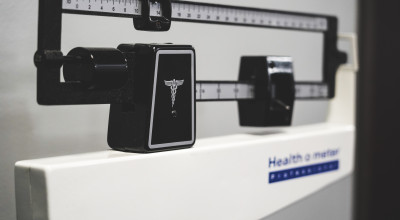The Alcohol Withdrawal Timeline
March 5th, 2021
To those of us who have experienced addiction in any form - from sugar to caffeine to drugs - you know that there is something called withdrawal. Withdrawal can look different for everyone and for every addiction. Even something as simple as a caffeine addiction can cause people to experience withdrawal if they suddenly decide to take a break from caffeine. These withdrawal symptoms can be anything from headaches to crankiness. The harder the drug we’re talking about, the more difficult and even dangerous these withdrawal symptoms become.
Alcohol is one of the most common addiction in the world. There are many individuals who recognize that they have a problem and think they can simply tackle the issue on their own. Many of these individuals don’t even realize how intense their withdrawal symptoms can be. Once they begin experiencing them and they get tougher and tougher - it is easy for them to simply have a drink in order to stop the withdrawal symptoms altogether, creating a terrible cycle and/or fear of getting sober.
In this blog, we want to educate you on what some of the most common withdrawal symptoms are and what the timeline looks like specifically when withdrawing from alcohol.
Ultimately, the more heavily you drink, the more severe your alcohol withdrawal symtoms will be. Withdrawal symptoms can be both mental and physical. When a person with significant alcohol dependence suddenly stops drinking the brain and the nervous system can tend to become hyperexcitable - leading to issues like:
- Anxiety
- Insomnia
- Irritability
- Tremors
- Agitation
- Seizures
- And more
In more severe cases, people can even develop high fevers and even experience hallucinations. In these cases, it is very important that people don’t try to go through this withdrawal process on their own. Some individuals with more severe addictions will need close medical monitoring and often medical intervention to assist them in the process of detoxification from alcohol. As the liver metabolizes ethanol and moves the drug through a person’s system, withdrawal symptoms will begin.
Process wise, alcohol withdrawal can be broken up into three stages:
- Stage 1 (mild) symptoms may include headache, insomnia, anxiety, hand tremor, gastrointestinal disturbances, and heart palpitations. These symptoms will usually begin within six to twelve hours of your last drink.
- Stage 2 (moderate): symptoms may include the same mild symptoms as in Stage 1 in addition to increased blood pressure or heart rate, confusion, mild hyperthermia, and rapid abnormal breathing.
- Stage 3 (severe): symptoms may include the same symptoms from Stage 2 moderate symptoms in addition to visual or auditory hallucinations, seizures, disorientation, and impaired attention.
Typically, Stage 1 tends to last for only a few hours. Stage 2 can last up to a few days, while Stage 3 can last from one week or longer depending on the severity of the addiction and the overall symptoms. Of course, every person is different and will experience their own combination of symptoms and within their own timeline. The standard length of time for a full detoxification from alcohol is typically 7-10 days. A person’s preexisting mental and physical health conditions may influence the withdrawal syndrome.
Some individuals who are struggling with alcohol addiction that go through withdrawal may experience a dangerous set of symptoms called Delirium tremens. Delirium tremens is a potentially fatal medical emergency that most commonly occurs in those who drink in excess daily for months or even years. Research shows 5% of the roughly 2 million Americans who look to alcohol addiction treatment each year experience delirium tremens. The mortality rate for delirium tremens can range from 3–15% each year. This is a big reason why it is important to not go through the detoxification process on your own if you are a historically heavy drinker.
No matter what, the road to sobriety may be a bumpy one, but it is worth the hard work. If you or someone you know is looking to get sober, consult our team of confidential admissions specialists today and we can help you. Especially if you believe yourself or your loved one will be in need of an assisted detox, our team can help.


